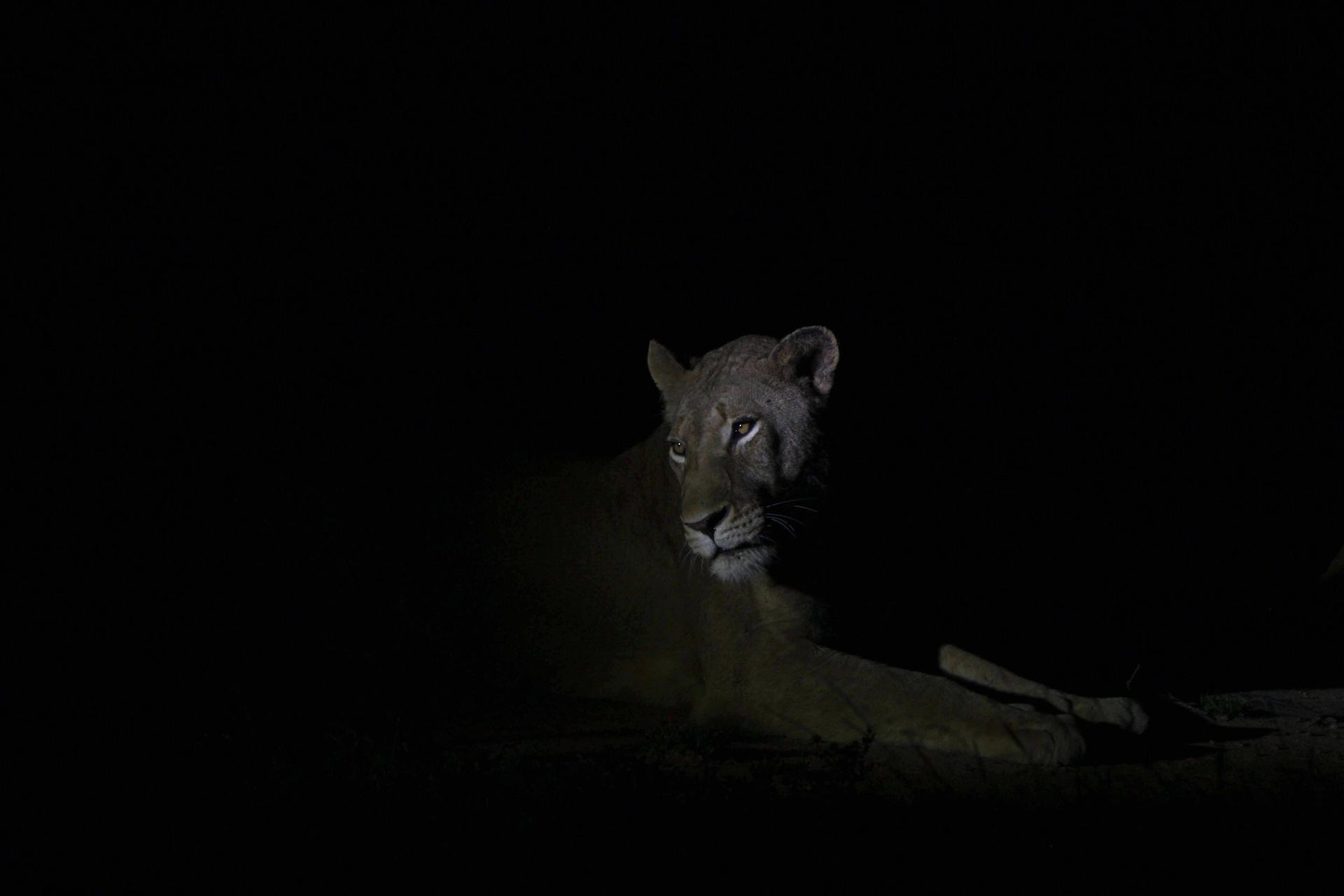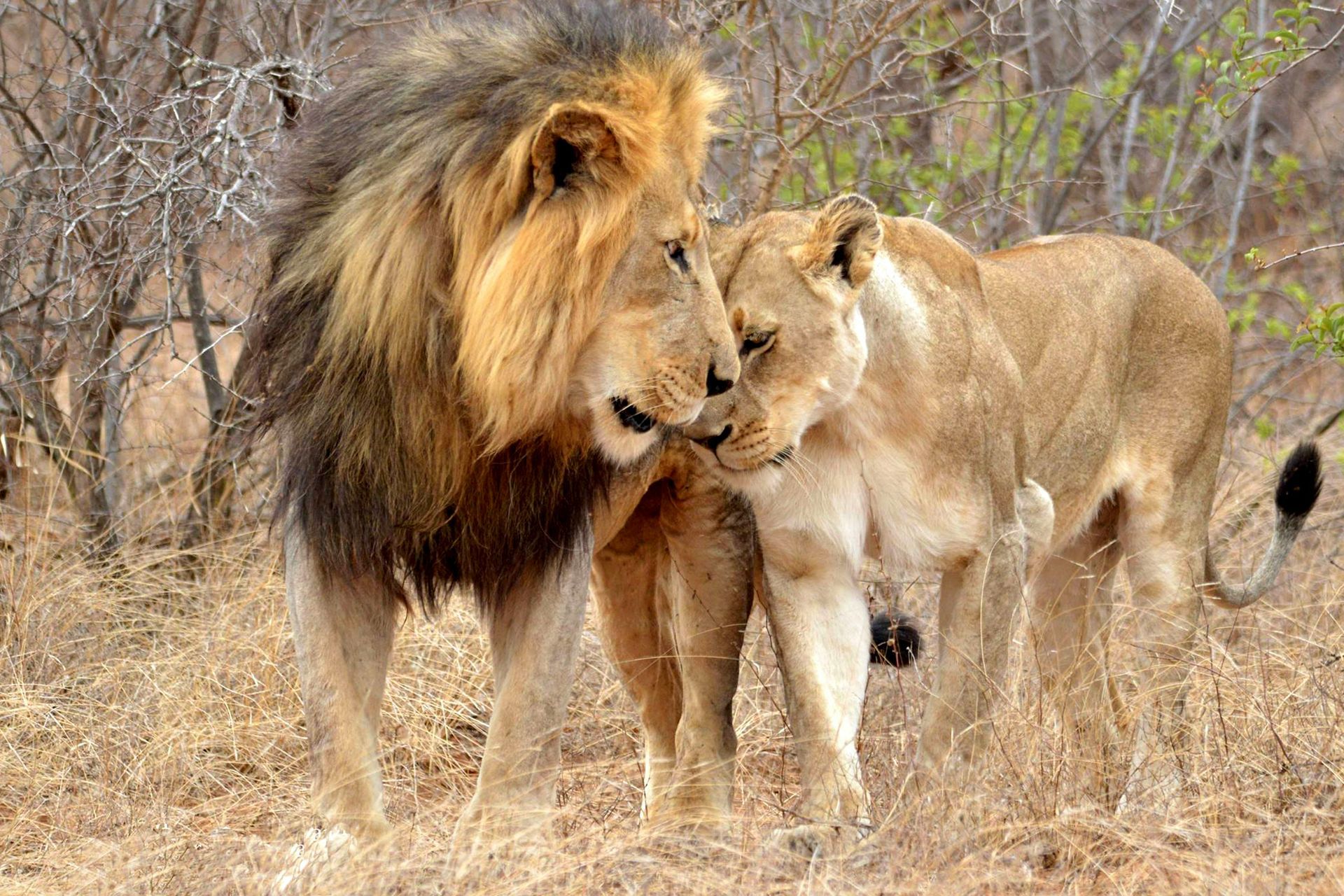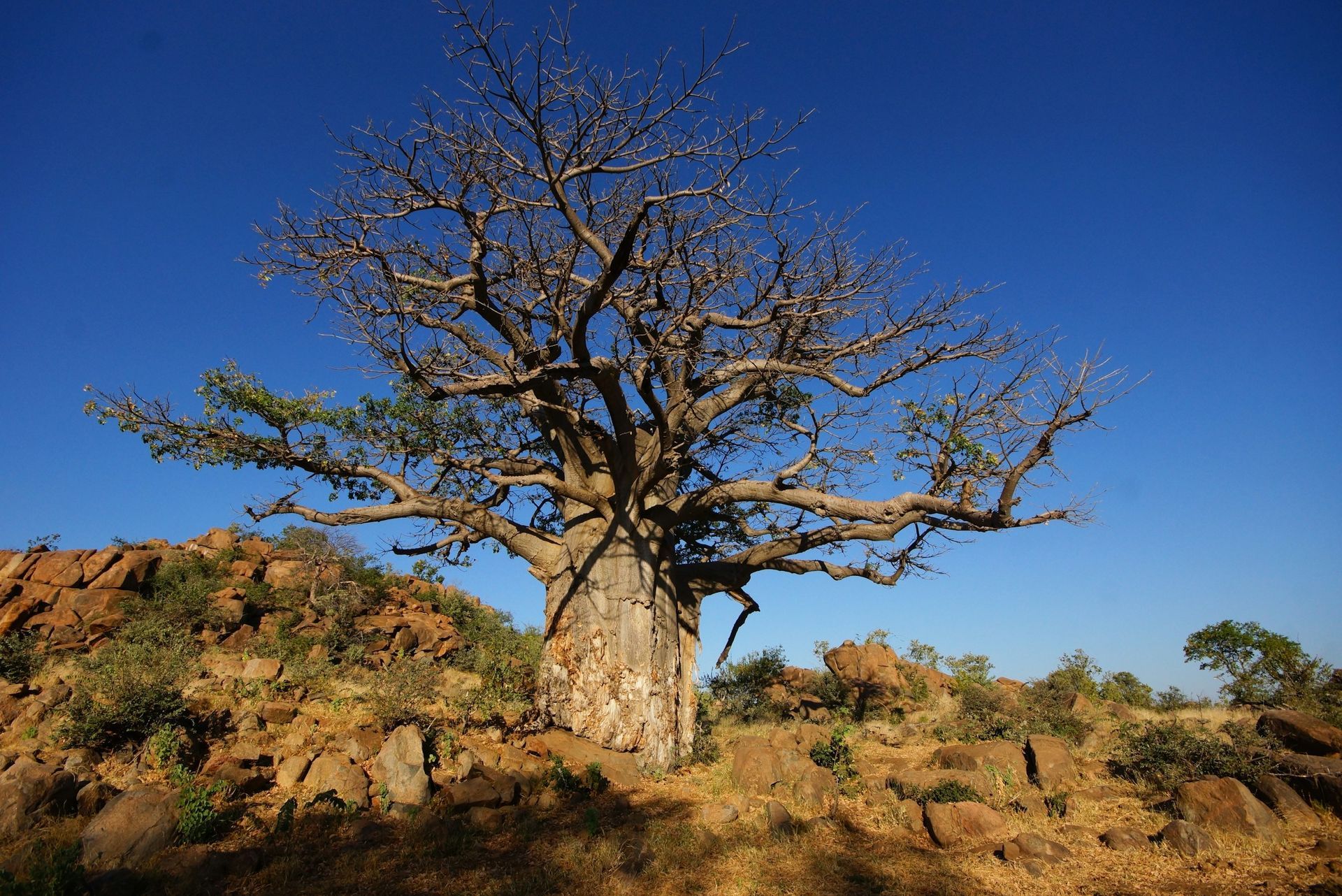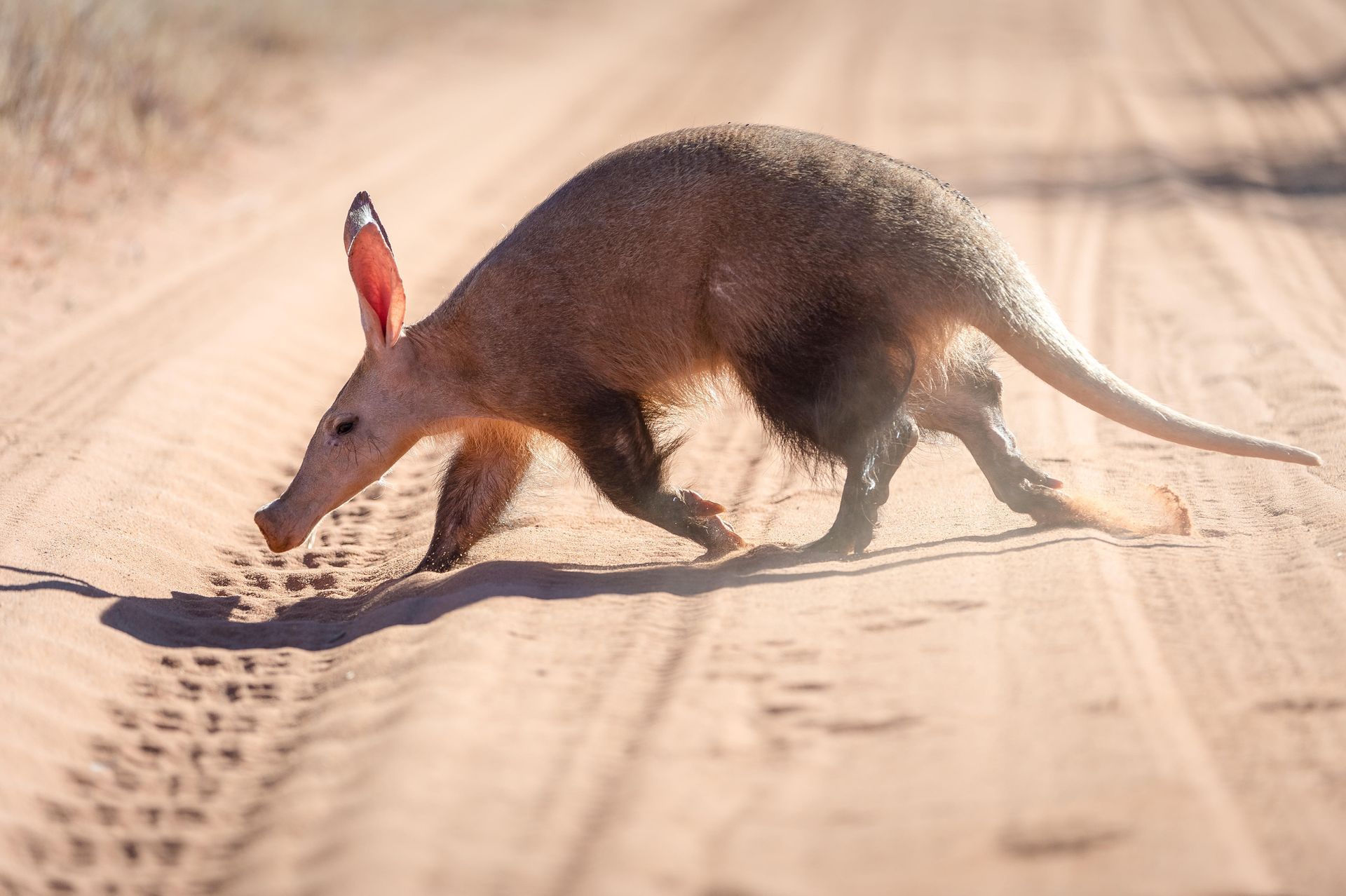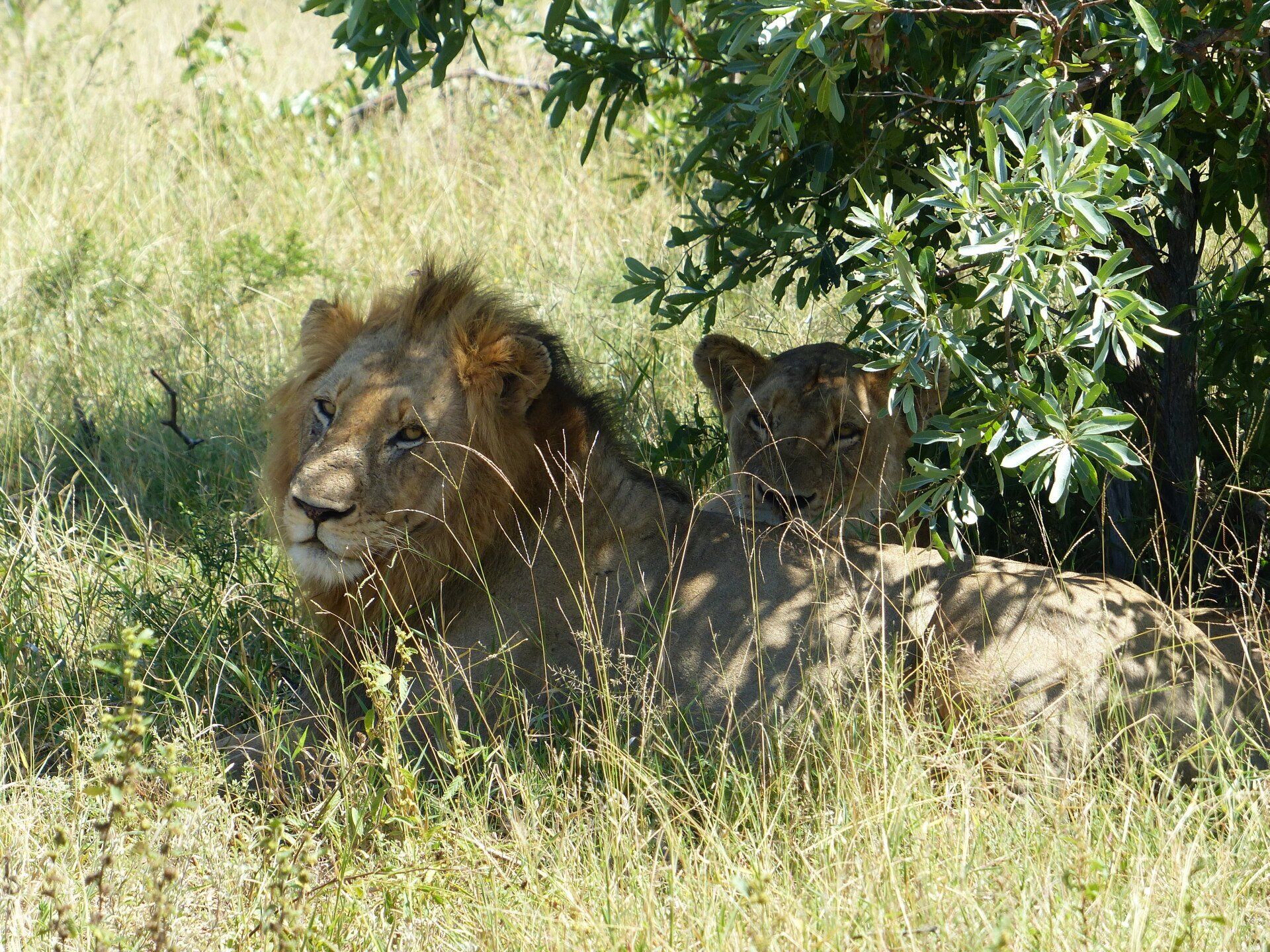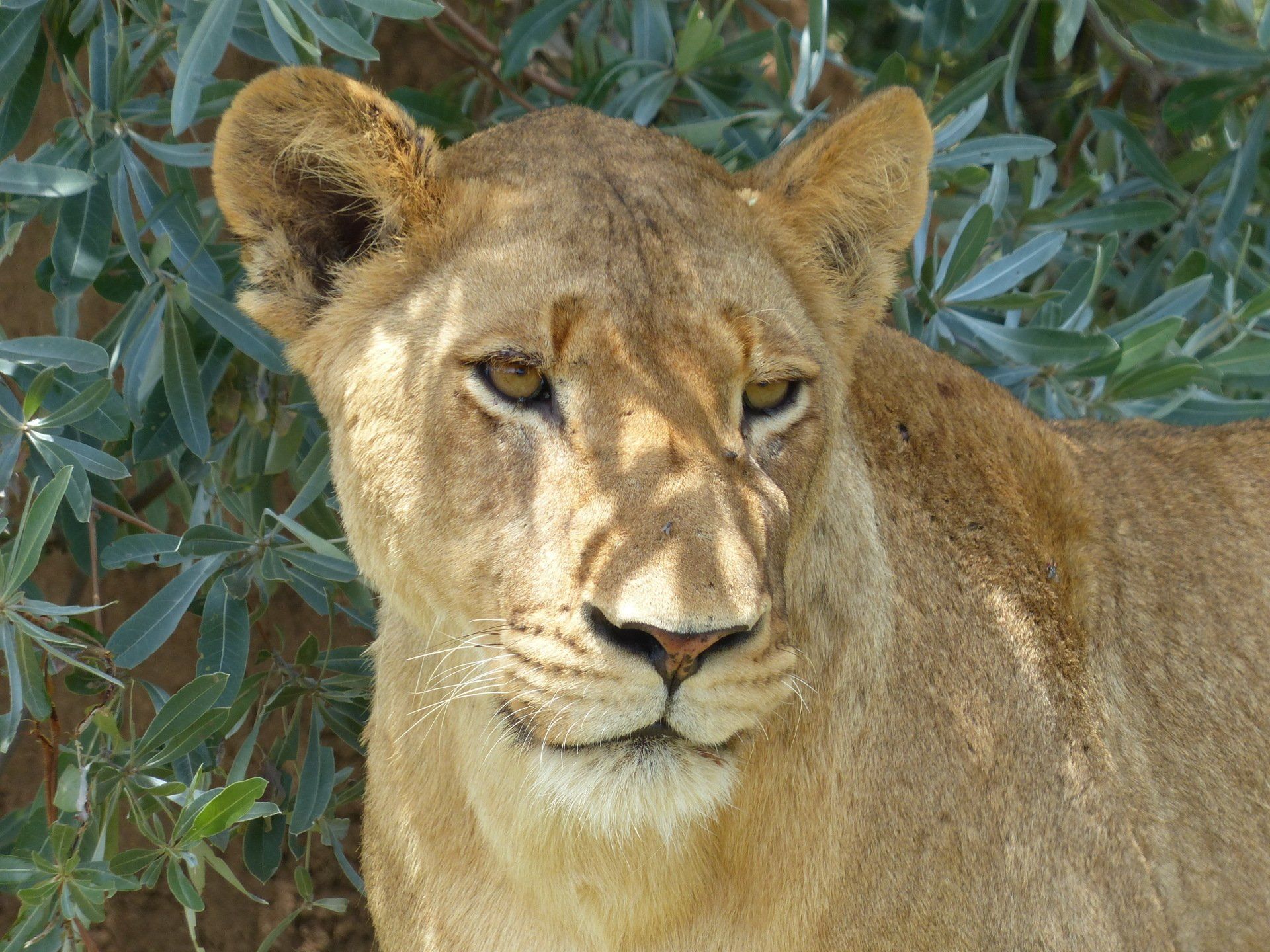Spending time with lions
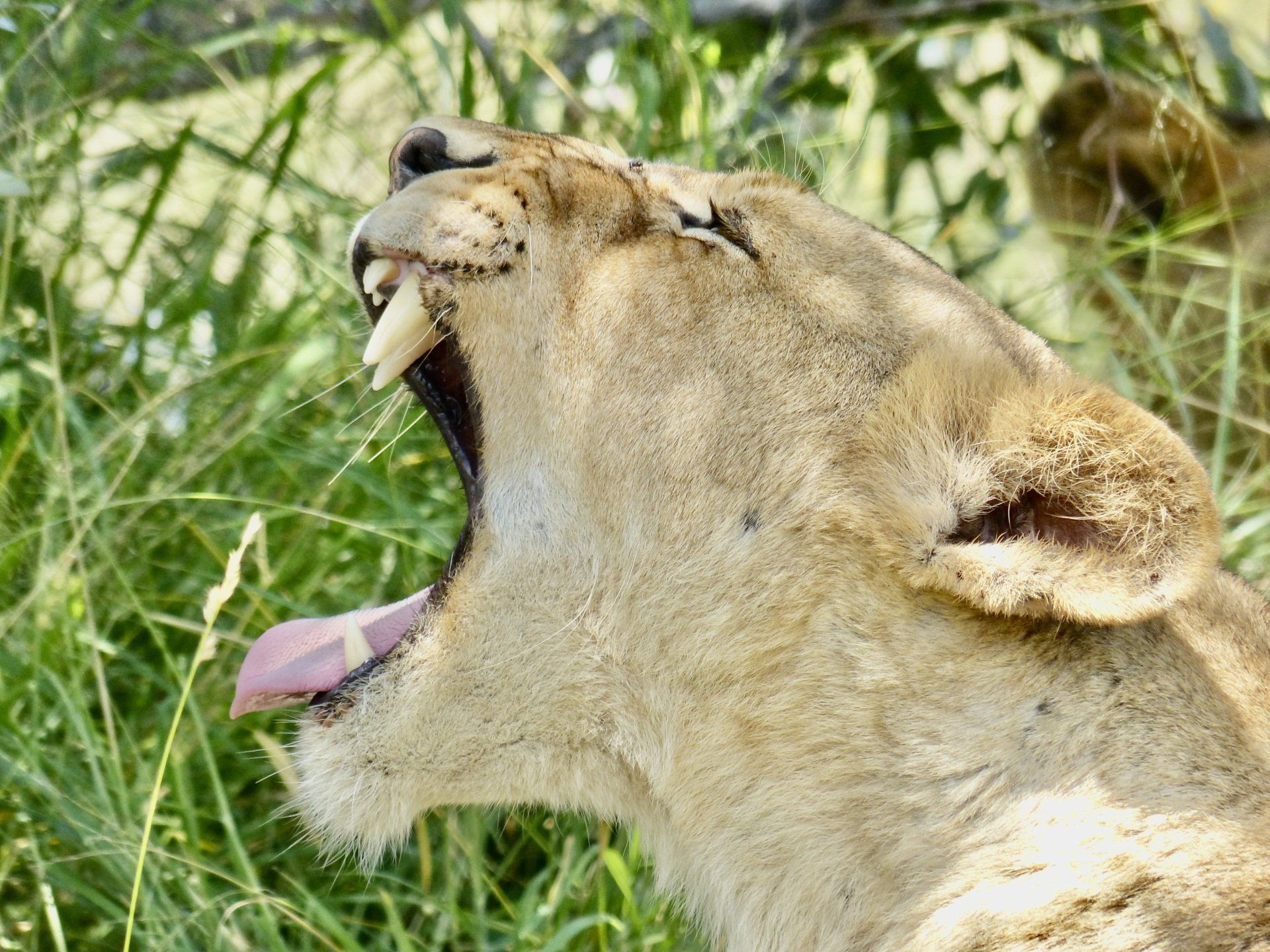
Working in the bush has its benefits, especially in the Greater Kruger, where you're surrounded by the fabled "Big Five" - leopard, lion, elephant, buffalo and rhino. Our team gets to see a lot of action while going about their daily business, as was the case with our recent Easter photo-shoot which was "bombed" by a pride of lions close to the lodge.
We picked up their tracks when we set up the Easter tableau in the bush in front of the pool deck and after wrapping that particular part of the shoot, followed the spoor to see where it led.
We found them laying next to the road on the other side of the staff village and spent some time just "hanging out" with them, watching them, taking photos and video, popping the odd Easter egg into the shots we took and generally enjoying seeing them, even if they were mostly what we call "flat cat" or "lalapanzi" - a local Xitsonga/Shangaan word for laying flat and sleeping.
Lions spend most of their days in the shade, sleeping and dozing, only becoming active once the sun begins to go down and dusk draws in. They are largely nocturnal hunters, preferring the cover of darkness to track and catch their prey, although they are opportunistic (as are most cat species) and if the chance comes to grab a convenient meal at any time of day they will take it. So never let a sleeping lion fool you!
The world's only truly social big cat, lions live in familial groups called prides that consist of one or two dominant, often related males, females (also often related) and cubs. Prides can be as big as 30 lions or consist of just a few.
Prides occupy their own territory and defend it vigourously, especially from other males. Indeed, the battle for retention of territory and taking over territory is an ongoing one that dictates pride dynamics. Invading males that come in and take over a pride will kill the previous male's cubs in what's known as infanticide. A couple of days later, the mother of the killed cubs will come into oestrus and mate with the new male. Where cubs are concerned, surviving until adulthood is the greatest challenge they will face!
Pregnant females will go off on their own just before the birth of their cubs and will find a secure, safe spot far away from the pride and other potential threats in which to give birth. They will nurture the cubs for between eight and 12 weeks before introducing them to the rest of the pride, especially if there are older cubs, waiting until they are big enough to handle the "rough and tumble" of pride life.
It's a sad fact that lions are one of Africa's most threatened species, with fewer than 20,000 of these magnificent apex predators left in the wild in Africa. The loss of habitat, along with poaching for body parts, are the leading causes of the demise of the African lion. This means that the conservation and protection of wilderness areas is of critical importance.
